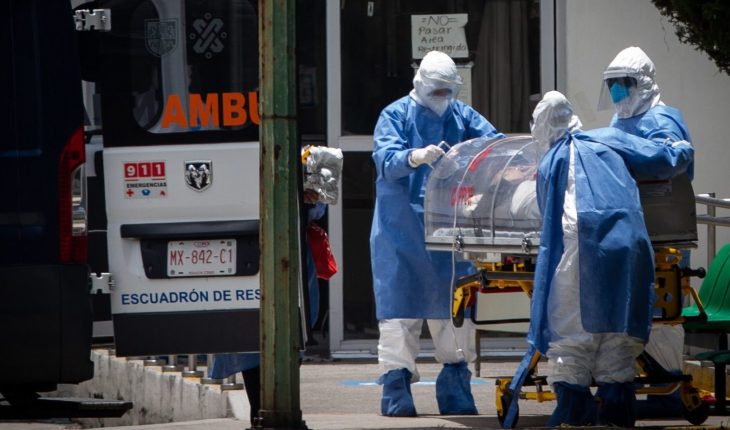In order to detect cases of COVID-19 among the population in a more timely manner and to identify the chains of contagion in a timely manner, IMSS launched a new strategy that seeks to strengthen the First Level of Care through proactive segumineot through the institute’s family doctors.
With this methodology, between 30 October and 5 November, 32,036 patients suspected of COVID-19 were monitored, of whom 12,241 and 4,343 of them were confirmed as positive.
“17,745 patients were monitored daily to know the health status of their homes; 3,115 family physicians are participating in this strategy, we timely identified 433 patients with severity data who were channeled in a timely manner to their hospitals; that is, the patients arrived in better condition,” explained Manuel Cervantes Ocampo, holder of the Coordination of Integral Health Care at the First Level of Social Security.
Read: IMSS enabled 16,118 beds for COVID-19 patients
The official added that to refer to patients with COVID-19 symptomatology he must be treated in a respiratory module, if he meets operational definition or is suspicious, the epidemiological study that is uploaded to a platform is done.
In addition, each case is reported to the director of the UMF who through the medical assistant of the office schedules the appointments that the patient will have over the phone with the family doctor.
Cervantes Ocampo added that the strategy includes several directorates, not only of the Medical Directorate, but of the Directorate of Innovation and Technological Development, and the Coordination of Epidemiological Surveillance, among others, and initially participate 1,992 doctors.
In this way, the proactive monitoring of possible COVID-19 cases by the family doctor has contributed to the decrease in the risk of contagion and mortality in patients with this disease.
“Family doctors commit to proactive empathetic follow-up, empowering this family doctor with their user population,” Cervantes Ocampo said.
Find out: IMSS will acquire 103 million pieces for medical protection; it’s the biggest purchase made by tender
The official added that this measure is taken in addition to the estating actions that have been impeded in the institution to prevent contagion such as the sisgema of resurgent prescriptions, telephone medical guidance and medical care for mental health.
In the case of the resurtible prescription, from March to 10 November 2020, 14 million 135,166 prescriptions have been issued to patients with chronic controlled diseases, thereby preventing them from going to the Family Medical Units (UMF).
In the same period, telephone medical guidance has been established and 359,541 calls were received, of which 60,496 were COVID-19 related. While from May to date 74,903 mental health care was granted due to anxiety, depression and stress.
It stated that patients with risk factors such as obesity, diabetes, hypertension or asthma are monitored by the family doctor to identify serious data and, where appropriate, channel them in a timely manner to hospitals, quickly clarify doubts about home care.
He stated that in the case of referring patients in a timely manner through a doctor who knows them and empowers with them, these COVID-19 damage can be mitigated and help prevent second- and third-level hospitals from being saturated.
What we do at Animal Politics requires professional journalists, teamwork, dialogue with readers and something very important: independence. You can help us keep going. Be part of the team.
Subscribe to Animal Politics, receive benefits and support free journalism.#YoSoyAnimal
translated from Spanish: IMSS seeks to improve COVID detection early and reduce death
November 12, 2020 |





